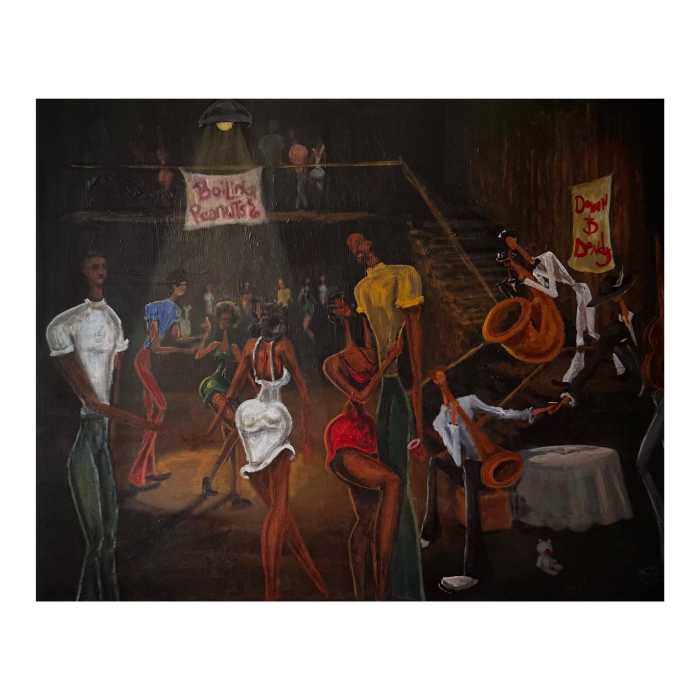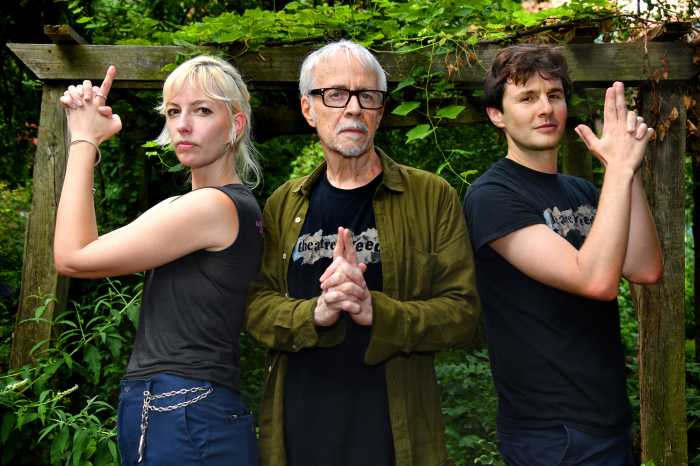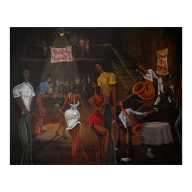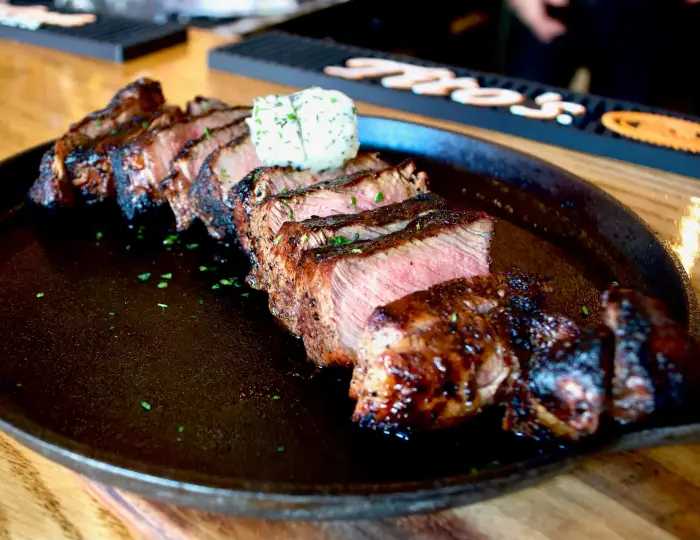By Janel Bladow
When he walked into Brasserie Ruhlmann in Rockefeller Center, he stood out from the rest of the lunch crowd: tall, stylish, and impeccably groomed in a custom-fit European-style gray suit. His face was tanned, his hair salt and peppered. He strode to our table as if he owned the place.
He does.
Jean Denoyer is the king of the brasserie. As co-owner at one time or another of some 24 restaurants throughout the U.S. with as many as five in New York City, he brought casual French dining to America when he opened La Goulue in 1972 on the Upper East Side.
Today he laments the loss of his flagship eatery last year, blaming the city’s sky-high rents and greedy landlords, not the recessing economy. La Goulue was still profitable when it closed its door in August after a booming nearly four decade run.
In its early days such luminaries as Jacqueline Onassis and Catherine Deneuve were among the regulars in the plush banquettes. More recently, the celebrated such as Bruce Springsteen, Sigourney Weaver and Annette and Oscar de la Renta dined regularly on its famed simple fare such as Steak au Poivre avec Pommes Frittes.
“I was here long before any of the others,” he says, referring to the last decade’s boom in celebrity-attracting bistros.
He’s attempting to reopen in a townhouse a few blocks from the iconic bistro that had cameos in movies such as Sex and the City and Fatal Attraction. But while he has the support of the local Community Board, he doesn’t sound hopeful.
“We have one woman, a neighbor across the street, fighting us,” he told ThriveNYC, as he leaned forward conspiratorially. “She was a regular (at La Goulue).”
He saw her at the Community Board meeting and thought it was sweet she was there to support him. “No,” he sighs, “she said she would love to have the restaurant back but not see it out her window!” He makes some clearly French motion that says, “What can I do?”
Jean Denoyer isn’t a man easily exasperated by challenges. He grew up in Paris above a hotel and came to New York City in 1965 as 23-year old to get out of his father’s reach. He had to become a success, he says, because he didn’t want his father to “send a return ticket.”
His first job was manager at Yellow Fingers, an UES nightclub that helped usher in the 60s disco era. “It was a huge success,” he says. Flawlessly and stylishly dress even back then, he remembers, “Everyone asked me where I got my suits. I saw a market for European fashion here and opened the first totally European store in New York.”
His Madison Avenue boutique was an immediate success but Denoyer had greater plans. He took his profits and opened the first La Goulue, named for the glutton in La Moulin Rouge who can-canned across tables as she quaffed customers drinks. “It was huge. Literally lines,” he recalls.
His brasseries began popping up like delectable morels, first in South Hampton, then Palm Beach, Chicago and Las Vegas, each place exquisitely designed with exacting detail and his Midas touch.
In 1993 Denoyer looked to the French period of colonization in Indochina and opened Le Colonial on 57th Street. From its tiled floors to ceiling fans, the chic eatery recalled a glamorous age long gone from the war-ravished nation and brought delicate Vietnamese dishes to the American palate.
After years as must-be-seen destination, La Colonial ebbed. But today, the elegantly exotic spot is regaining some of its last century cache.
His current popular eastside boite is Orsay, a carefully constructed combination of Art Nouveau arches and custom designed (by himself!) chandeliers, dark mahogany walls and floors of Italian tiles repeating the arch shape in fans across the floor.
Denoyer’s reach also extends to Japonais, a stylish sushi and more restaurant and lounge in Chelsea. He’s also hard at work opening an Italian restaurant on Madison Avenue this summer.
But his heart belongs to Brassiere Ruhlmann. Here he pays homage to his idol, French Art Deco designer Emile-Jacques Ruhlmann. From the graceful super-dome chandeliers hanging from the ceiling to the dark wood paneled walls, Denoyer, a Ruhlmann aficionado who has bought and sold his extensive collection twice, has recreated the perfect 1900s French brassiere.
“I thought I could live without him,” he says of collecting Ruhlmann furniture and accessories, throwing his head back in hearty resignation. “And I could for a few years. But I had a relapse.”
Denoyer, married with two teenage daughters, says the biggest change in his 37 years as a restaurateur in the city is our love of food. “Over the years, Americans have learned how to eat and drink. When I first started it was Scotch and Martinis throughout the meal. But Americans have become more and more sophisticated. They appreciate fine food and wine.”
Having had both knees replaced eight years ago hasn’t slowed him down. He still loves to ski, golf, travel and walk the family’s black German Shepherd puppy in Central Park.
“I enjoy work every day,” he says, smiling with a lilt in his lightly French accented voice. “I never think of it as work. As long as I enjoy it, absolutely, I’ll keep doing it.”






































